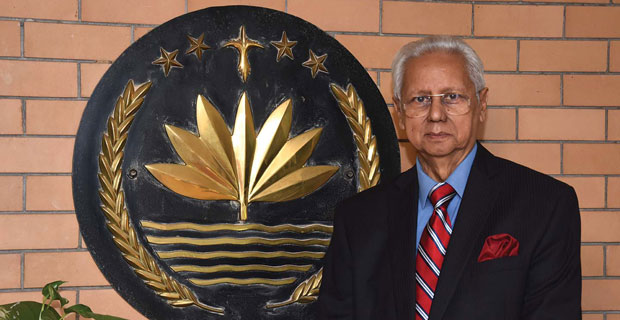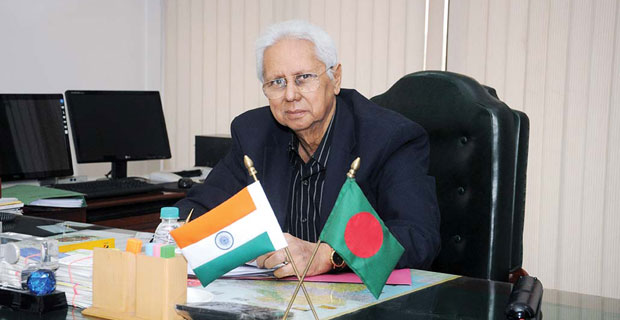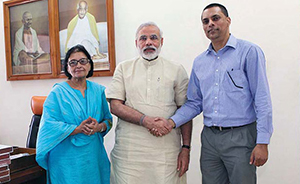“Our bilateral relations have been termed the best ever”
On the eve of our Forty Seventh Anniversary of our Independence and National day, permit me to recall, with deep appreciation ...
During the Summit level meeting in April 2017, our two Prime Ministers Sheikh Hasina and Narendra Modi have taken our bilateral ties to a new level which is well beyond the “strategic partnership”. The Eleven Agreements and Twenty-four MoUs signed during the visit virtually encompass every important sector in our bilateral cooperation namely security, trade, connectivity, energy, civil nuclear agreement, defence and introduction of new bus and train services etc. In addition to the two earlier Line of Credits (LOCs) India also extended a fresh LOC to Bangladesh to the tune of $5 billion which also includes $ 500 million for defence purchase. Our Private sectors also made their valuable inputs when they signed MoUs for investment to the tune of $13 billion, primarily in the energy sector.

During the Liberation War, you were posted in the Pakistan Embassy in Washington. And yet you involved yourself in the liberation struggle. Please give us a glimpse into what transpired during your time in Washington back in 1970.
Yes, it was a challenging time. I had joined the Pakistan Embassy on my first diplomatic assignment in December 1970 and within months, the Pakistan military Government, in complete disregard of people’s mandate, had launched a genocidal war on our people. In response to the declaration of independence by Bangabandhu Sheikh Mujibur Rahman, the Bengali officers at the Embassy had expressed our allegiance to Bangladesh and conveyed our readiness to work for our independence. Subsequently we formally declared our allegiance to Bangladesh, sought political asylum and opened Bangladesh Mission in Washington, DC. This was the largest “mass defection” of diplomats and completely unnerved the then Nixon administration which had been supporting the Pakistani regime.
It was indeed unfortunate that President Nixon, and his National Security Advisor Dr. Henry Kissinger, did not view our liberation struggle in its correct perspective, and had looked at it in the context of the then East-West rivalry of the Cold War era. They were using Islamabad as a conduit for establishing diplomatic ties with Beijing, and were not concerned about the sufferings of our people. The vast majority of American people, however, did not share the apathy of their Administration, and had come out openly in support of our democratic aspirations. The US press and news media, throughout our War of Independence, gave an honest and vivid, though horrifying, account of the systematic genocide perpetrated by the Pakistani military in Bangladesh. The Pakistani authorities had forcibly evacuated some of the American and foreign journalists from Dhaka in the early hours of fateful 25 March, and this in turn had only strengthened their resolve to support our cause.











Comments.